The Role of Hormones in Sexual Desire: What Your Body Is Telling You?
Ayush Singh | Apr 11, 2025, 19:08 IST
( Image credit : Freepik, Timeslife )
Why does your sex drive feel like a rollercoaster—high one moment, flat the next? It’s not just in your head. It’s in your hormones.This article unpacks how key hormones like testosterone, estrogen, dopamine, and cortisol silently influence your sexual desire, mood, and emotional connection. Whether you're feeling distant, deeply drawn to someone, or just plain “off,” your body might be trying to tell you something.From menstrual cycle shifts to stress overload, this feature helps you decode your inner chemistry in plain language. It’s honest, insightful, and rooted in real-life experiences—because understanding your desire isn’t just about sex. It’s about owning your health, your choices, and your emotional well-being.
Ever had days when you're inexplicably craving intimacy, and others where the thought barely crosses your mind? Or moments when someone checks all the boxes on paper but the spark still feels… off?
It’s not random. Your hormones might be doing the talking.
Beyond regulating hunger, sleep, and stress, hormones play a central role in shaping our sexual desire. They can amplify or mute our urges, shape who we’re attracted to, and influence how we connect emotionally and physically. If you've ever felt "off" in the bedroom or wildly in tune with someone out of nowhere, chances are your hormones were the silent architects.
Let’s decode how this intricate chemical system runs the show—and how tuning into it can transform your relationship with your body and your desire.
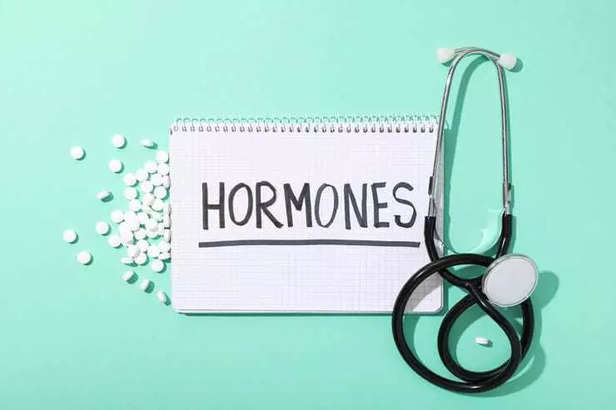
Hormones are the body’s chemical messengers. Produced by glands like the pituitary, thyroid, ovaries, and testes, they circulate through your bloodstream, orchestrating key biological functions—mood, appetite, energy levels, and yes, sexual desire.
When it comes to libido and intimacy, a specific group of hormones plays the leading roles. Here’s the cast.
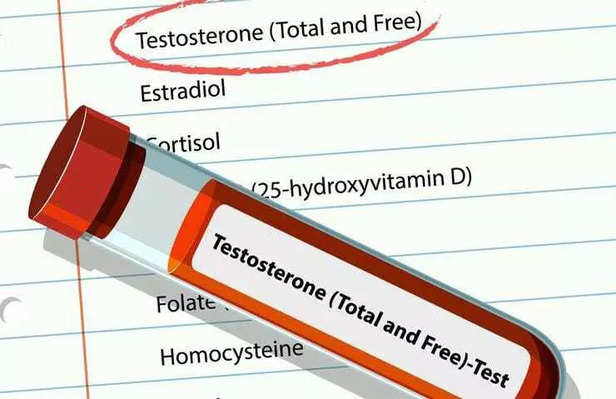
Often labeled the “male sex hormone,” testosterone is just as vital for women. It fuels sexual thoughts, sensitivity to touch, and that primal craving for intimacy.
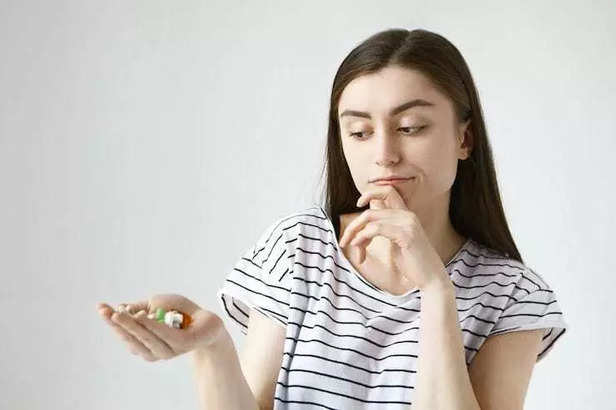
Estrogen is primarily known for regulating the menstrual cycle, but it also plays a starring role in sexual health. It:
Even birth control pills, which regulate estrogen and progesterone, can sometimes dull desire. It’s a balancing act—and each body plays by its own rules.
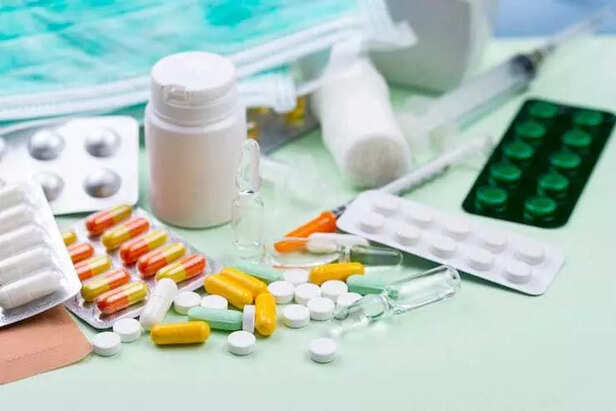
Progesterone has a bit of a reputation—some experts dub it the “anti-sex hormone.” While essential for pregnancy and menstrual regulation, it tends to lower libido.
In the second half of the menstrual cycle (post-ovulation), progesterone rises. Some women report feeling more tired, emotionally withdrawn, or less sexually interested during this time.
It's not a villain—just part of the monthly hormonal rhythm. And again, awareness is power.

Ever felt intensely close to someone after a kiss or cuddling session? Thank oxytocin. Often released during physical affection, orgasm, and even eye contact, oxytocin is the bonding hormone.
While it's not a direct turn-on switch, high oxytocin levels foster intimacy, trust, and emotional safety—all of which can enhance sexual desire in a meaningful, connected way.
It’s more about connection than lust, but in long-term relationships, that’s often what keeps the flame alive.

Dopamine is your brain’s feel-good chemical, released during moments of pleasure, excitement, and reward. It fuels that euphoric high when you’re crushing on someone or swept into a new romance.
 Serotonin is a mood stabilizer—and that’s both good and bad news for your sex drive.
Serotonin is a mood stabilizer—and that’s both good and bad news for your sex drive.
On the one hand, it helps regulate anxiety and depression. But too much serotonin, especially from SSRIs (antidepressants), can inhibit sexual desire and cause difficulty with arousal or orgasm.
It’s the reason why some people on long-term antidepressants report a blunted libido. Emotionally balanced, yes—but sexually disengaged. Again, balance is everything.
 Ever been turned on during a thrilling or risky moment? That’s adrenaline at work. Short bursts of this hormone increase heart rate, blood flow, and alertness—all of which can boost arousal.
Ever been turned on during a thrilling or risky moment? That’s adrenaline at work. Short bursts of this hormone increase heart rate, blood flow, and alertness—all of which can boost arousal.
But chronic stress is another story.
Enter cortisol, the stress hormone. Elevated levels over time can suppress sex drive. When your body thinks it’s in survival mode, it won’t prioritize reproduction or pleasure. It’s biology’s way of saying: “Now’s not the time.”
If your libido has nosedived during a stressful period, cortisol may be the culprit.

For menstruating individuals, sexual desire tends to ebb and flow with the cycle.

It’s important to note: hormones are one piece of the puzzle.
Sexual desire is also shaped by emotional intimacy, personal history, mental health, trauma, communication, self-image, and even cultural conditioning. Still, when sudden shifts occur—like a dip in libido or heightened sensitivity—it’s worth asking: what’s happening hormonally?
Simple questions like:
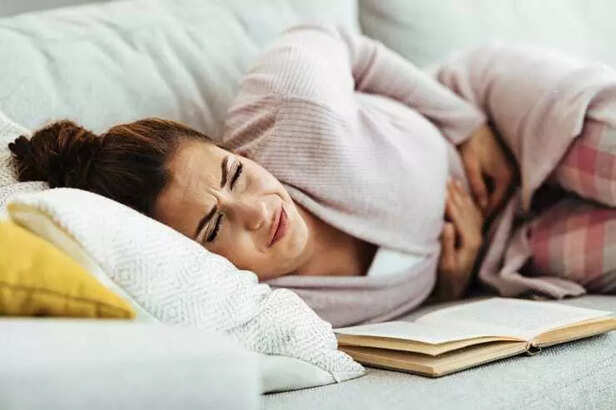
If changes in sexual desire persist or impact your quality of life, it’s okay—normal, even—to seek help.
Doctors or specialists may explore:

Before heading to the supplement aisle, consider these science-backed, lifestyle-driven habits:
Your body speaks in signals—fatigue, cravings, mood shifts, and yes, changes in sexual desire. Instead of brushing them off, start tuning in.
Hormones aren’t confusing or shameful. They’re your body’s way of communicating. When you learn their language, you gain insight into not just your desire, but your overall health and happiness.
It’s not random. Your hormones might be doing the talking.
Beyond regulating hunger, sleep, and stress, hormones play a central role in shaping our sexual desire. They can amplify or mute our urges, shape who we’re attracted to, and influence how we connect emotionally and physically. If you've ever felt "off" in the bedroom or wildly in tune with someone out of nowhere, chances are your hormones were the silent architects.
Let’s decode how this intricate chemical system runs the show—and how tuning into it can transform your relationship with your body and your desire.
What Exactly Are Hormones?

sex hormones
( Image credit : Freepik )
Hormones are the body’s chemical messengers. Produced by glands like the pituitary, thyroid, ovaries, and testes, they circulate through your bloodstream, orchestrating key biological functions—mood, appetite, energy levels, and yes, sexual desire.
When it comes to libido and intimacy, a specific group of hormones plays the leading roles. Here’s the cast.
Testosterone: The Drive Behind the Desire

testosterone
( Image credit : Freepik )
Often labeled the “male sex hormone,” testosterone is just as vital for women. It fuels sexual thoughts, sensitivity to touch, and that primal craving for intimacy.
- In men, low testosterone is tied to reduced libido, fatigue, and erectile dysfunction.
- In women, a drop can lead to diminished desire and difficulty achieving orgasm.
- In men, it peaks in the morning and slowly declines with age.
- In women, levels often spike around ovulation—coinciding with increased arousal mid-cycle.
Estrogen: Arousal’s Unsung Hero

estrogen
( Image credit : Freepik )
Estrogen is primarily known for regulating the menstrual cycle, but it also plays a starring role in sexual health. It:
- Increases vaginal lubrication
- Enhances sensitivity and arousal
- Supports emotional receptivity and bonding
Even birth control pills, which regulate estrogen and progesterone, can sometimes dull desire. It’s a balancing act—and each body plays by its own rules.
Progesterone: Libido’s Chill Pill?

progesterone
( Image credit : Freepik )
Progesterone has a bit of a reputation—some experts dub it the “anti-sex hormone.” While essential for pregnancy and menstrual regulation, it tends to lower libido.
In the second half of the menstrual cycle (post-ovulation), progesterone rises. Some women report feeling more tired, emotionally withdrawn, or less sexually interested during this time.
It's not a villain—just part of the monthly hormonal rhythm. And again, awareness is power.
Oxytocin: The Cuddle Chemical

hormones
Ever felt intensely close to someone after a kiss or cuddling session? Thank oxytocin. Often released during physical affection, orgasm, and even eye contact, oxytocin is the bonding hormone.
While it's not a direct turn-on switch, high oxytocin levels foster intimacy, trust, and emotional safety—all of which can enhance sexual desire in a meaningful, connected way.
It’s more about connection than lust, but in long-term relationships, that’s often what keeps the flame alive.
Dopamine: Desire’s Dopamine Rush

sexual relationship
Dopamine is your brain’s feel-good chemical, released during moments of pleasure, excitement, and reward. It fuels that euphoric high when you’re crushing on someone or swept into a new romance.
- It spikes during sexual activity
- It’s involved in the “anticipation” thrill of intimacy
- It’s why some describe sexual attraction as “addictive"
Serotonin: The Complicating Factor

intimacy
On the one hand, it helps regulate anxiety and depression. But too much serotonin, especially from SSRIs (antidepressants), can inhibit sexual desire and cause difficulty with arousal or orgasm.
It’s the reason why some people on long-term antidepressants report a blunted libido. Emotionally balanced, yes—but sexually disengaged. Again, balance is everything.
Adrenaline & Cortisol: The Stress Paradox

sexual attraction
But chronic stress is another story.
Enter cortisol, the stress hormone. Elevated levels over time can suppress sex drive. When your body thinks it’s in survival mode, it won’t prioritize reproduction or pleasure. It’s biology’s way of saying: “Now’s not the time.”
If your libido has nosedived during a stressful period, cortisol may be the culprit.
The Menstrual Cycle: A Hormonal Symphony

healthy relationship
For menstruating individuals, sexual desire tends to ebb and flow with the cycle.
- Ovulation (Day 13-15): Estrogen and testosterone surge. Libido often peaks.
- Luteal Phase (Post-ovulation): Progesterone rises. Desire may dip.
- Menstruation: Hormones drop. Some report heightened arousal due to increased blood flow; others feel more tired or emotionally flat.
Hormones Aren’t Destiny—But They’re Insightful

sex drive
It’s important to note: hormones are one piece of the puzzle.
Sexual desire is also shaped by emotional intimacy, personal history, mental health, trauma, communication, self-image, and even cultural conditioning. Still, when sudden shifts occur—like a dip in libido or heightened sensitivity—it’s worth asking: what’s happening hormonally?
Simple questions like:
- Am I stressed out?
- Where am I in my cycle?
- Did I start a new medication?
- Am I sleeping or eating well?
When to Seek Support

menstruation cycle
If changes in sexual desire persist or impact your quality of life, it’s okay—normal, even—to seek help.
Doctors or specialists may explore:
- Hormone therapy (e.g., testosterone for men or postmenopausal women)
- Switching birth control methods
- Checking for thyroid or adrenal imbalances
- Mental health support if emotional blocks are involved
- Sexual health is health. Don’t wait until it becomes a source of shame or conflict.
Natural Ways to Support Hormonal Balance

relationship
Before heading to the supplement aisle, consider these science-backed, lifestyle-driven habits:
- Sleep: 7-9 hours helps regulate cortisol and reproductive hormones.
- Exercise: Strength training can naturally boost testosterone and dopamine.
- Eat healthy fats: Avocados, nuts, and fish support hormone production.
- Hydrate: Water helps everything—from mood to lubrication.
- Manage stress: Yoga, deep breathing, journaling, or even tech-free walks.
Final Thought: Tune In, Don’t Tune Out
Hormones aren’t confusing or shameful. They’re your body’s way of communicating. When you learn their language, you gain insight into not just your desire, but your overall health and happiness.
